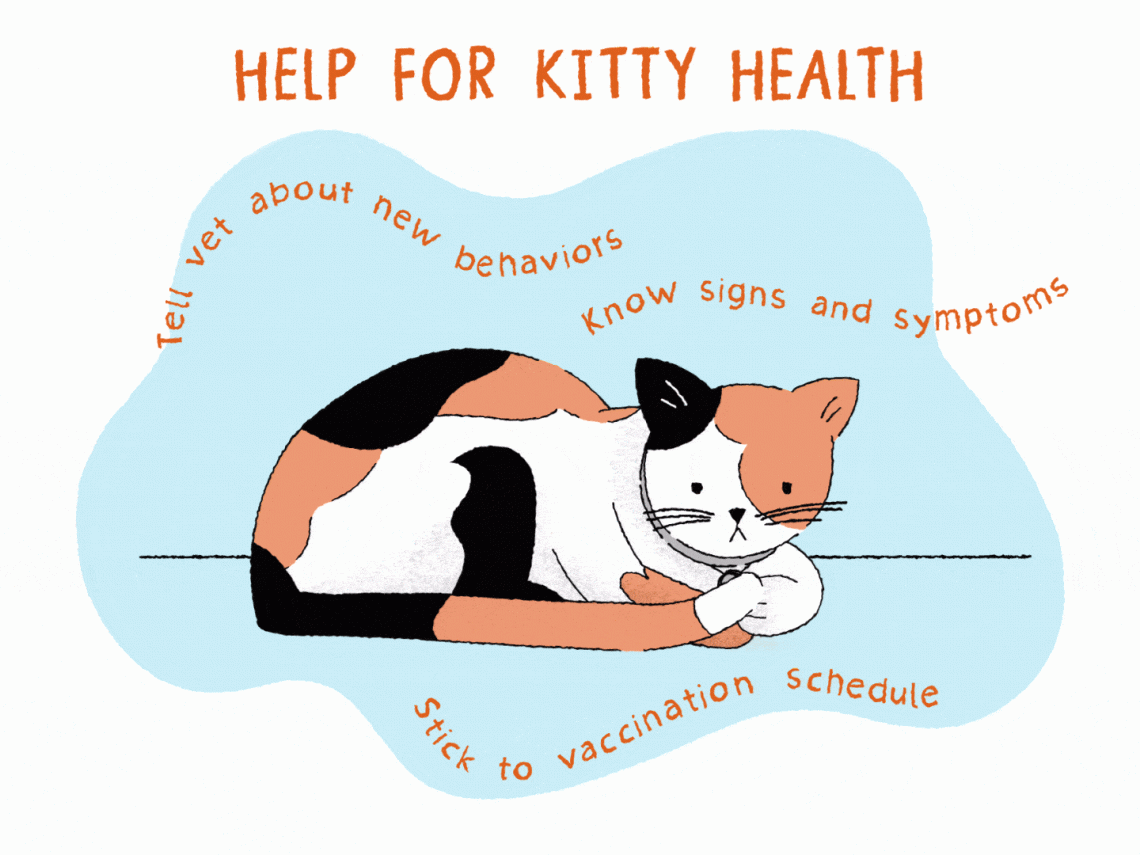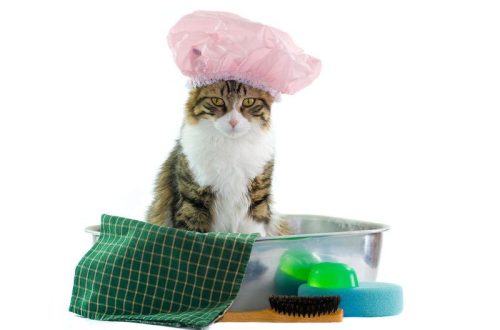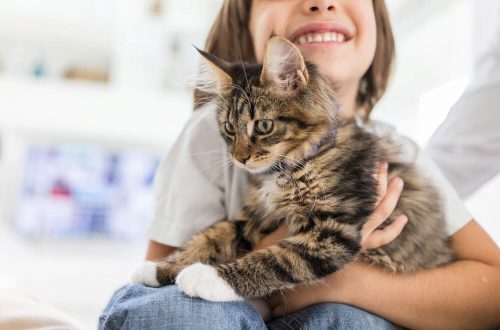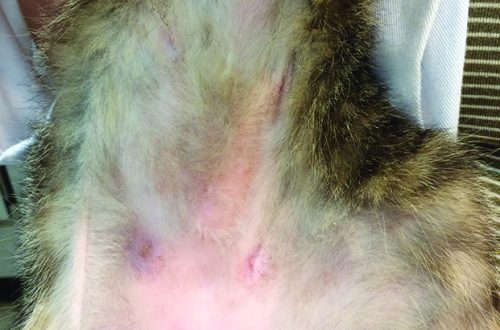
How to understand and what to do if the kitten is sick?
If you think your kitten is sick, do not try to treat it yourself and contact your veterinarian as soon as possible. Due to the peculiarities of metabolism, many diseases in cats develop rapidly, and sometimes the bill goes literally by the hour. Alas, the owners are not always able to recognize that the kitten is sick.
Contents
Anorexia
Usually kittens eat with pleasure. Is yours refusing to eat? Of course, it cannot be ruled out that the baby did not like the cat food you chose. Try to offer him something else. But if the kitten has not complained so far, and now suddenly stopped eating, this is a reason to worry. Loss of appetite accompanies many diseases – from poisoning and chlamydia to panleukopenia (distemper) and leukemia.
Gait
Often the owners do not pay attention to the fact that the kitten began to limp, and they think that he just hit himself during the game. However, lameness can be not only a symptom of an injury (which in any case should be a reason to contact a veterinarian), but also a sign of such a serious disease as calcivirosis. This infection affects the respiratory organs and often leads to the death of the animal.
Vomiting
It is common for cats to burp up hairballs from time to time, which they lick off of themselves while washing. But frequent or profuse vomiting is a symptom of the disease. Nausea and vomiting accompany many feline diseases, including distemper, infectious peritonitis, parasites, poisoning, disorders of the digestive system, and kidney disease.
Diarrhea
Diarrhea is often caused by improper diet of a kitten. In this case, it is enough to change the diet after consulting with a specialist, and everything will work out. But don’t take this symptom lightly. Diarrhea accompanies almost all parasitic diseases, it can signal poisoning, disorders of the gastrointestinal tract, and infections. Sometimes diarrhea is a side effect of certain medications. And finally, it can indicate stress and nervous tension. If the kitten weakens no more than three times a day, without blood and mucus, you can try to give him activated charcoal and restrict food, providing plenty of fluids. In any case, do not engage in amateur activities, for qualified treatment, contact specialists.
Heat
The body temperature in cats is higher than that of humans – 37,5–39,5⁰С, this variation is explained by the characteristics of different breeds. But if the temperature rises to 40–41⁰С, this is a sign that the kitten is sick, and you need to know what to do in this case. A hot, dry nose in an animal is a sign of fever. Indirectly, weakness and lethargy, lack of appetite, trembling and shortness of breath indicate an increase in temperature. Fever can be caused by both infections and parasites or intoxication.
Sneezing and coughing
Cough, especially if it is accompanied by profuse salivation, conjunctivitis and shortness of breath, may indicate rhinotracheitis, a serious infectious disease. It is impossible to exclude asthmatic syndrome, as well as allergies – just like people, kittens can be allergic to dust, plant pollen, and some chemicals. However, coughing can also indicate the development of heart disease, tumors, the presence of parasites or a hernia.
Anxiety and aggressiveness
Sometimes aggression is the result of bad parenting. But if you notice that the cat is incredibly affectionate (literally does not leave the owner), then suddenly becomes violent or becomes overly shy, while refusing food and drink, then this is a reason to suspect rabies (especially if the pet is not vaccinated, but it happens outdoors), chronic stress or dysfunction of the thyroid gland – hyperthyroidism.
Smell from the mouth
You can also find out that the kitten is sick by the unpleasant smell from the mouth. This is often the case with dental problems. Just like humans, cats are susceptible to dental disease. Caries, gingivitis, pulpitis, stomatitis, osteomyelitis and tartar deposits are especially common. Moreover, cats with a flattened muzzle – for example, Persians – are more prone to dental diseases than others. You can avoid dental problems if you give the kitten not only soft, but also dry food – it cleans off plaque, creates an adequate load on the teeth and gums and keeps them healthy. An unpleasant smell from the mouth can also be associated with diseases of the upper respiratory tract – for example, a sore throat or laryngitis. A putrid smell is characteristic of diseases of the digestive tract, ammonia is a clear sign of problems in the genitourinary system, and an acetone-like smell indicates the development of diabetes.
Is your kitten sick? Find out in advance the phone numbers of all nearby veterinary clinics. Establish contact with the veterinarian in the first days of the pet’s life in your home, follow the vaccination schedule and visit the doctor regularly. And in order to prevent the disease, follow all the rules for caring for a kitten, make sure that he eats properly and does not have access to toxic substances. You can determine that a kitten is unwell by carefully observing your pet and studying its habits.





